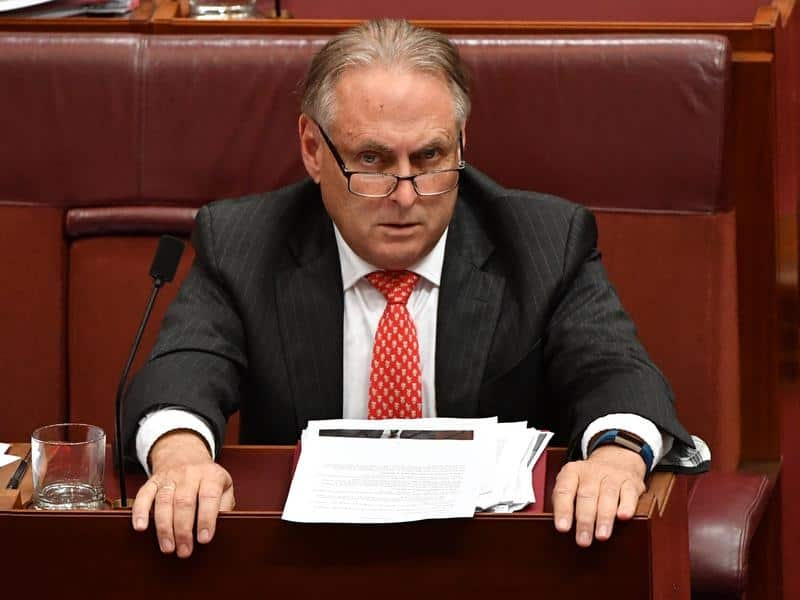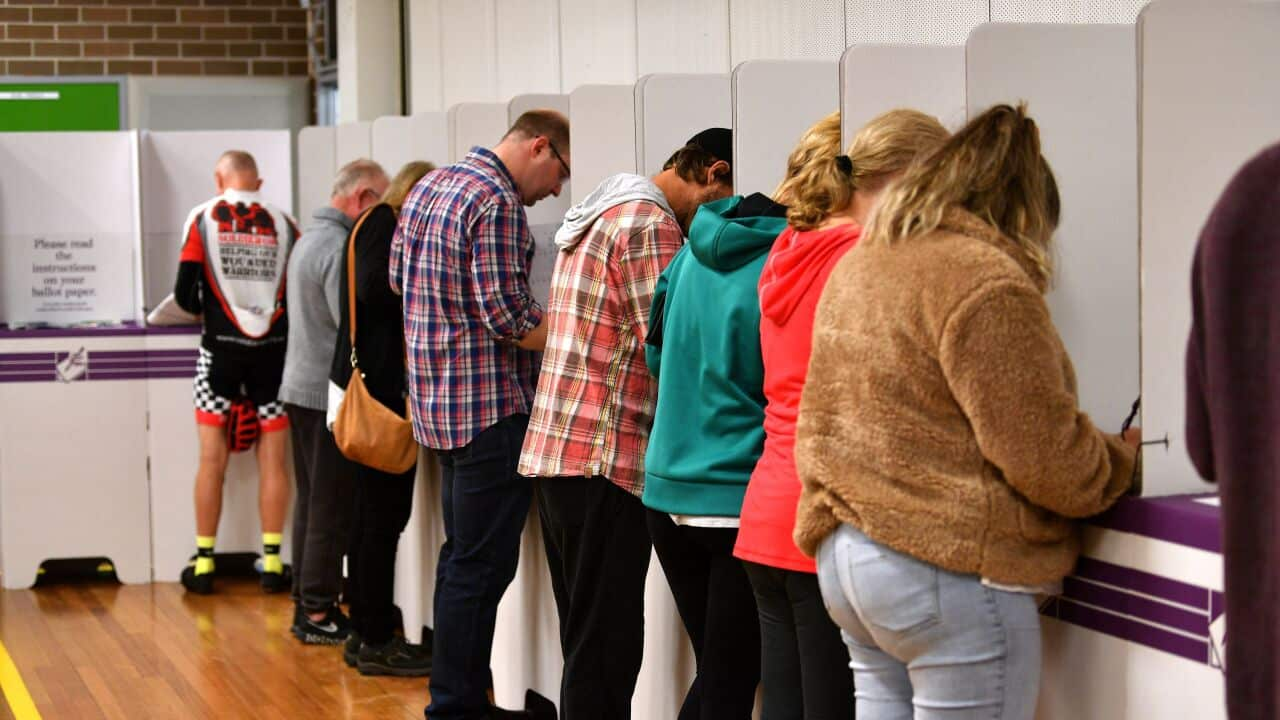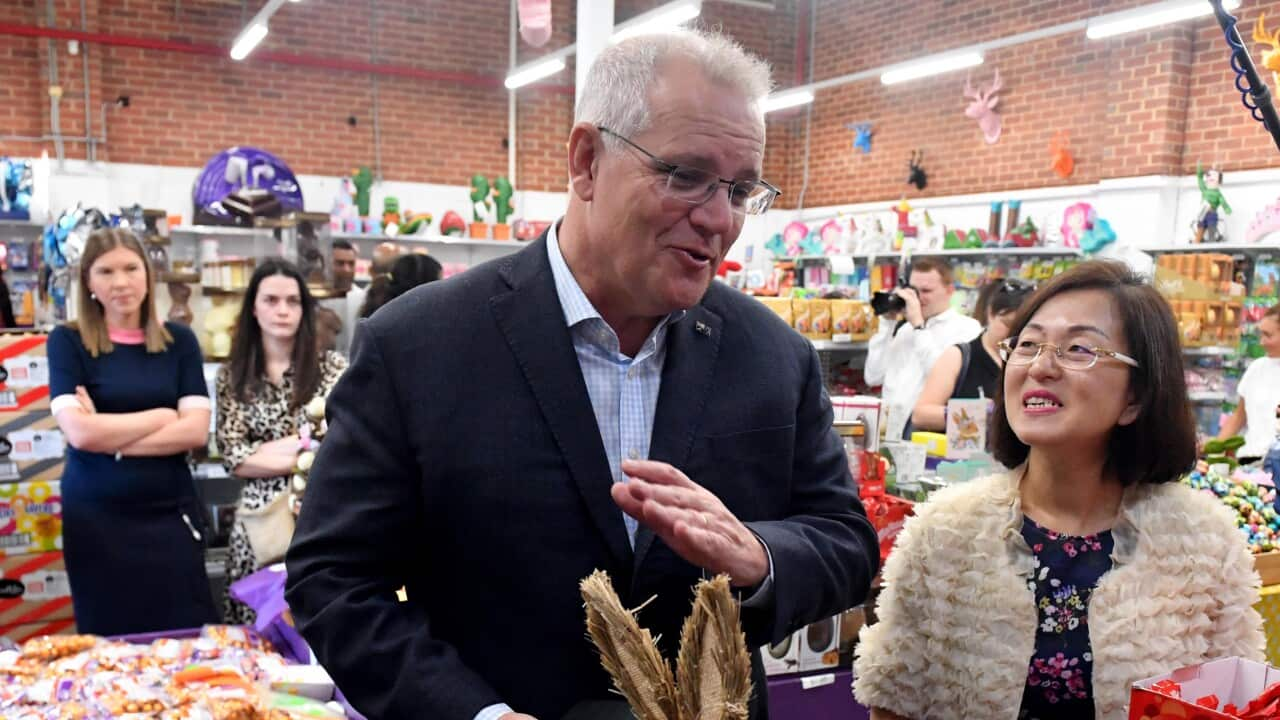KEY POINTS
- The government will expand the ways Australians can enrol to vote.
- Voters will soon be able to enrol using a Medicare card or citizenship certificate.
- Labor wants the change in place before the Aston by-election.
The federal government is expanding the ways Australians can enrol to vote, in a move it says will particularly help new migrants and Indigenous Australians.
More than half a million people eligible to cast their ballot in Australia are currently not on the electoral roll, which had required either a driver's licence or passport to enrol.
But as of Friday evening, they are now also able to enrol or update their details using a or .
Over a fifth of eligible new citizens are not on the electoral roll, while an estimated 15.5 per cent of eligible Indigenous Australians had not been registered by the end of last year.
Labor argued the previous system disadvantaged young people, Indigenous Australians, those with a disability, , who are less likely to hold driver's licences or passports.

Special Minister of State Don Farrell says the change will make voting more equitable.
"We're a democracy. We're proud of our democratic traditions. We want to see as many Australians given the opportunity to vote, and we want to make it easier for them to get on the roll," he told SBS News.
"Our measures today should make it a lot easier for Australians to enrol and to exercise their democratic rights in elections."
Federation of Ethnic Communities Councils of Australia chairperson Carlo Carli welcomed the decision, saying Australia had always worked "extremely hard" to increase voting in marginalised communities.
Mr Carli told SBS News that requiring a passport or drivers' licence had been particularly "restrictive" for older migrants.
"Australia has such a proud record of getting people to vote ... Anything that makes that easier is a good thing, and I think largely promotes democracy in our country," he said.
The change did not need to be legislated, coming into effect via regulation signed by Senator Farrell on Friday.
By-election in mind
The change comes in time for the April by-election in Aston, where Labor is seeking to become the first government in over a century to wrest a seat off the Opposition mid-term.
The race was sparked by the resignation of former education minister Alan Tudge, who retained the seat in May despite suffering an 11.6 per cent swing.
"This will be the first opportunity that people will have, as of five o'clock tonight, to use the new forms of identification to get themselves on the electoral roll," Senator Farrell said.
Prime Minister Anthony Albanese insisted the Liberal Party remained the favourite to retain the seat, but described Labor's pick to contest the seat, breast cancer survivor Mary Doyle, as an "exceptional candidate" committed to Medicare and worker rights.

Anthony Albanese insists Labor is the underdog in the race for Aston. Source: AAP / Joel Carrett
As a parliamentary inquiry explores how the May 2022 federal election functioned, Senator Farrell insisted the change was not the only measure underway in order to make voting more equitable.
That included requiring political parties and candidates to disclose any donation over $,1000, significantly down from the current threshold of $15,000, he said.
"But more importantly, we're proposing real-time disclosure, so as voters go into we're into the election period, they'll know exactly who's supporting a particular candidate," he said.
In December 2021, .
Implications for upcoming referendum
Leaders in the Indigenous remote towns like Maningrida in the Northern Territory have called for changes to make it easier for Indigenous Australians to be added to the electoral roll.
The mayor of the West Arnhem Council in the NT, Matthew Ryan, told SBS News that the issue will be critical for the upcoming Indigenous Voice to Parliament referendum, expected in the second half of the year.
"There's a solution: automatic enrolment. The data that is available within the health system and also in the Centrelink system," he said.
"And at the moment, the AEC are too slow to implement these things. Too many excuses. It's appalling. We want to be enrolled automatically so that we have our voice heard."
The national enrolment rate for voters sits above 97.1 percent, but for First Nations people it's at around 84.5 percent nationally - and just 76.7 percent in the Northern Territory.
- Additional reporting by Biwa Kwan


